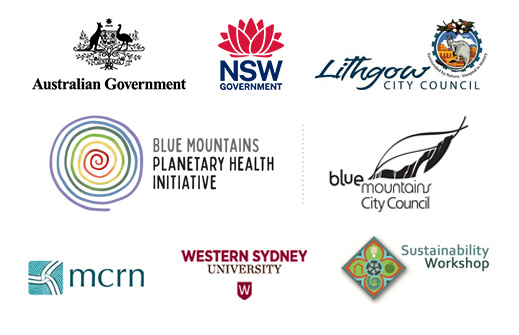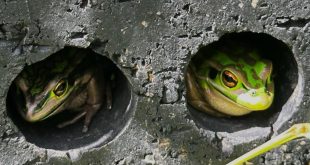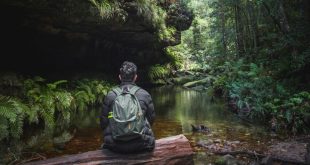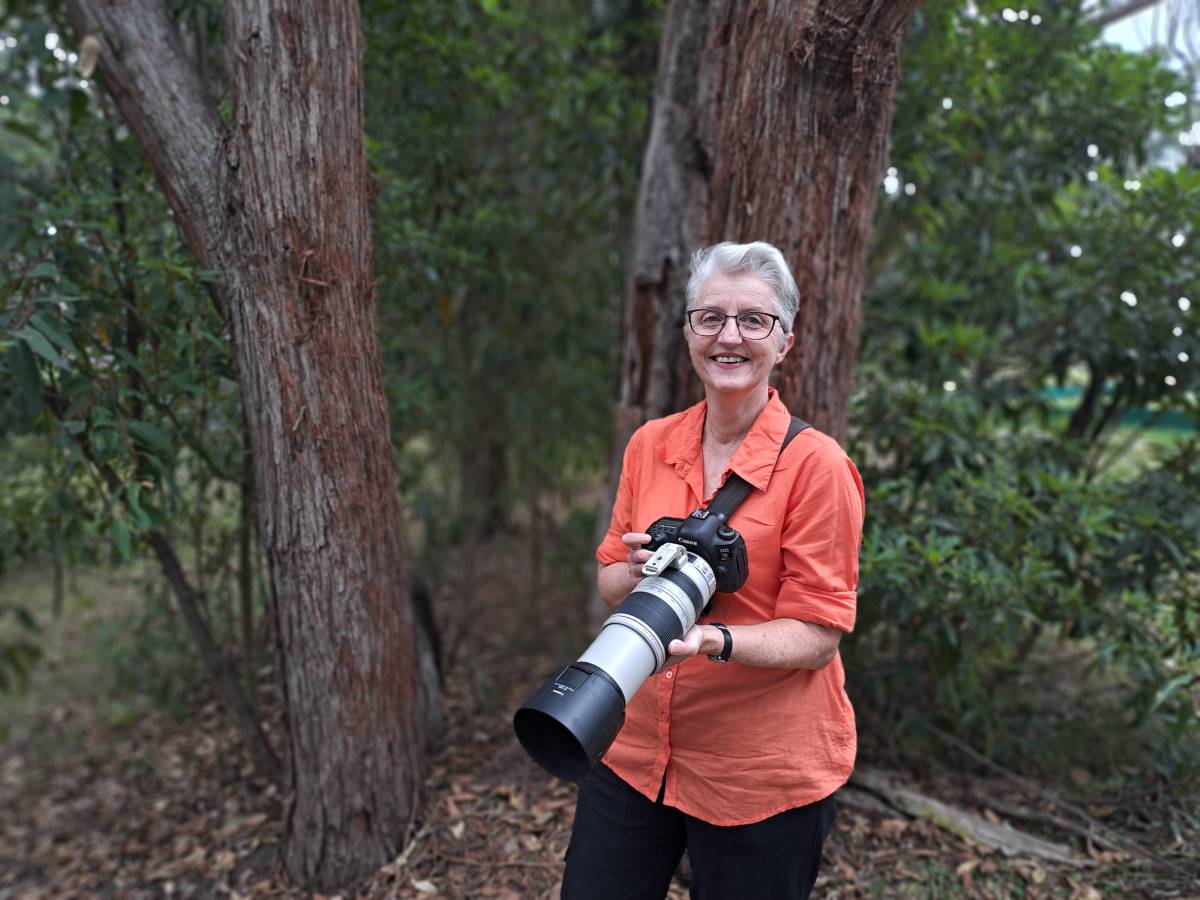
Merryl Watkins is often stopped by strangers when they notice her camera and impressive telephoto lens. They ask “are you Merryl Watkins? We love your photos”. (Photo: Julie Nance)
Story by Julie Nance, photos by Merryl Watkins
For an entire year over COVID lockdowns, Merryl Watkins posted a new bird photo on social media every day. The Blaxland resident wanted to remind people there was still beauty in the world and joy to be found if you stop, look and listen. Her photography obsession captured imaginations both in the Blue Mountains and overseas, raising awareness of endangered wildlife and treating audiences to the fun antics of our feathered friends.
Key Points:
- “Change brought about by humans is reducing nature’s capacity to sustain birds and life for the future. In the face of nature’s changes, threatened bird species need our help to survive.” (Source: Birdlife Australia’s 2023-2032 Bird Conservation Strategy).
- By sharing her stunning Blue Mountains bird photography, Merryl Watkins aims to raise awareness of the birdlife we have around us and spread the word they need our appreciation and support.
Over brunch at a Lower Mountains café, it was touching to learn how passionate Merryl is about birds in her backyard and beyond.
The former English, history and drama teacher grew emotional when describing the unintended impact her bird photography has had on strangers.
“During the lockdowns people were connecting with each other because I simply put a post up, having conversations with me and each other,” she says.
“It was really special. Although I don’t post every day now, the one reason I keep doing it is I’ve had people say to me, ‘you helped get me through a really dark time’. It just blows me away.”
After 10 years of sporadic photography, including taking happy holiday snaps with husband George, in 2017 Merryl signed up for a photography course at Nepean Community College in Penrith. She gained the skills and confidence to use the manual settings on her DSLR camera, rather than automatic.
However, it was an invitation to attend a camera club in Blackheath with a friend that was the gamechanger.
“The thing that really clicked for me was when we focused on shutter speed,” Merryl says.
“For a bird in flight, you need a higher shutter speed. It depends on the light and everything, but I try to have it on 1/2000th of a second.
“You see things you would miss with your naked eye. That opened up this whole new world for me. I’d always loved birds from when I was little but after that, I became obsessed.”
I asked Merryl to select some of her favourite photos over the past couple of years and share her experiences with us. Below is a tiny sample of her collection.
Galahs
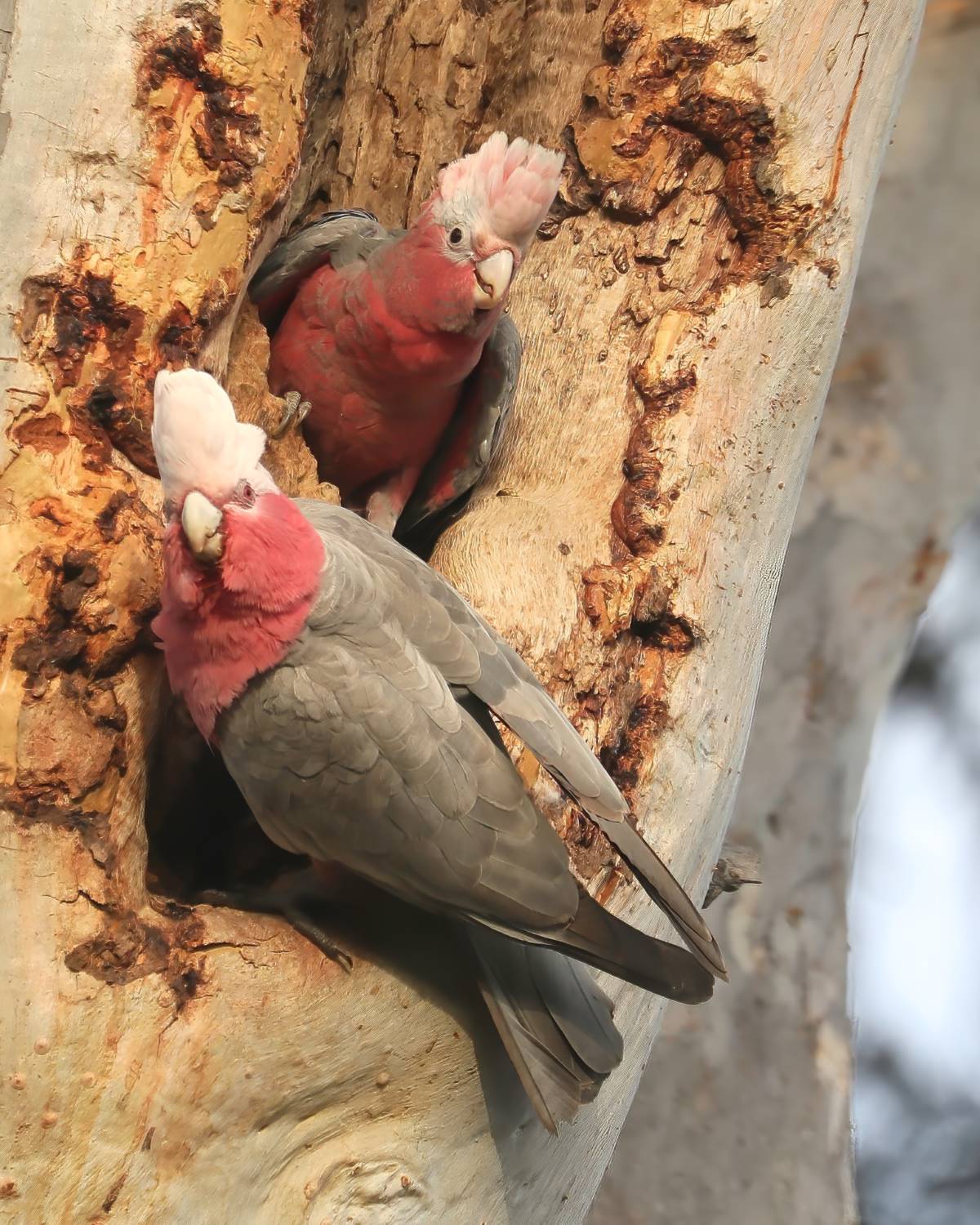
This photo was taken shortly after dawn. I had watched the female Galah and her mate as they prepared a hollow in a neighbour’s tree. They fought off other birds including much bigger Sulphur-Crested Cockatoos and then started feeding their young ones.
It was the parents’ second season at the tree and they would come to our yard for water and to eat seeds from the grass and weeds we had grown for them. I knew the first young one (at the top) was getting ready to fly and had watched the parents encouraging him/her for days. This is the split second before the young Galah’s awe-inspiring maiden flight. I missed the actual moment because I was crying. This was such a special thing to see and to be there, in my backyard, was truly incredible.
Regent Honeyeater
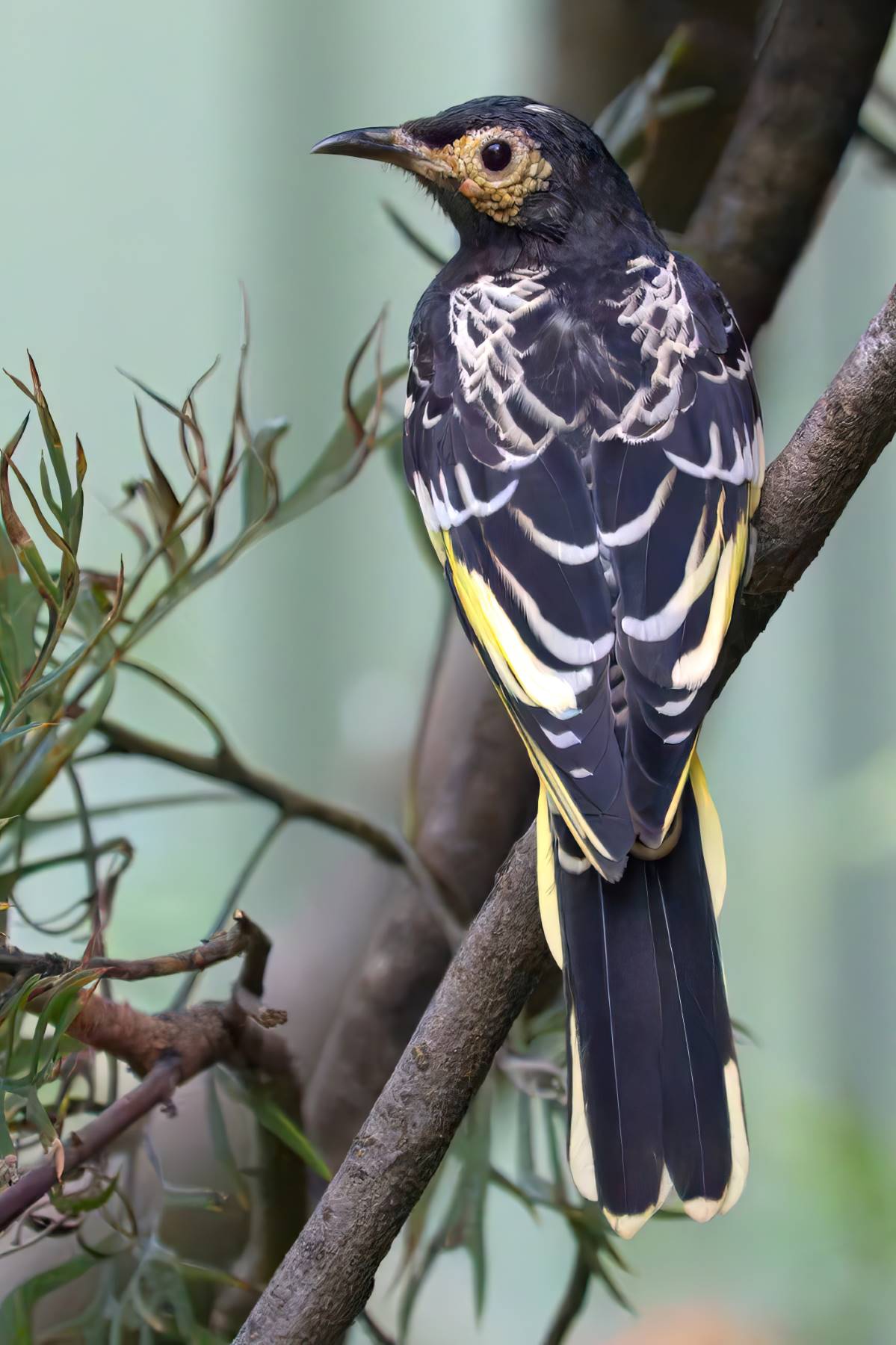
This is a photo I never expected to get, especially in a suburban yard. This is a male Regent Honeyeater, critically endangered in NSW and Victoria. In fact, with only 250 to 300 birds in the wild, according to BirdLife Australia, “they are among Australia’s birds most likely to become extinct”.
He and another male were regular visitors to a grevillea in a yard at the bottom of the Blue Mountains earlier this year. The other bird was banded and from what I’ve read, his bands show he was bred in captivity and released in the Hunter Valley region. It would appear the bird in the photo is wild born. How exciting is that!
A number of birds bred at Taronga Zoo have been released into the wild and there are signs they are breeding with wild born birds. We can only hope successes like that continue.
Gang Gang Cockatoos
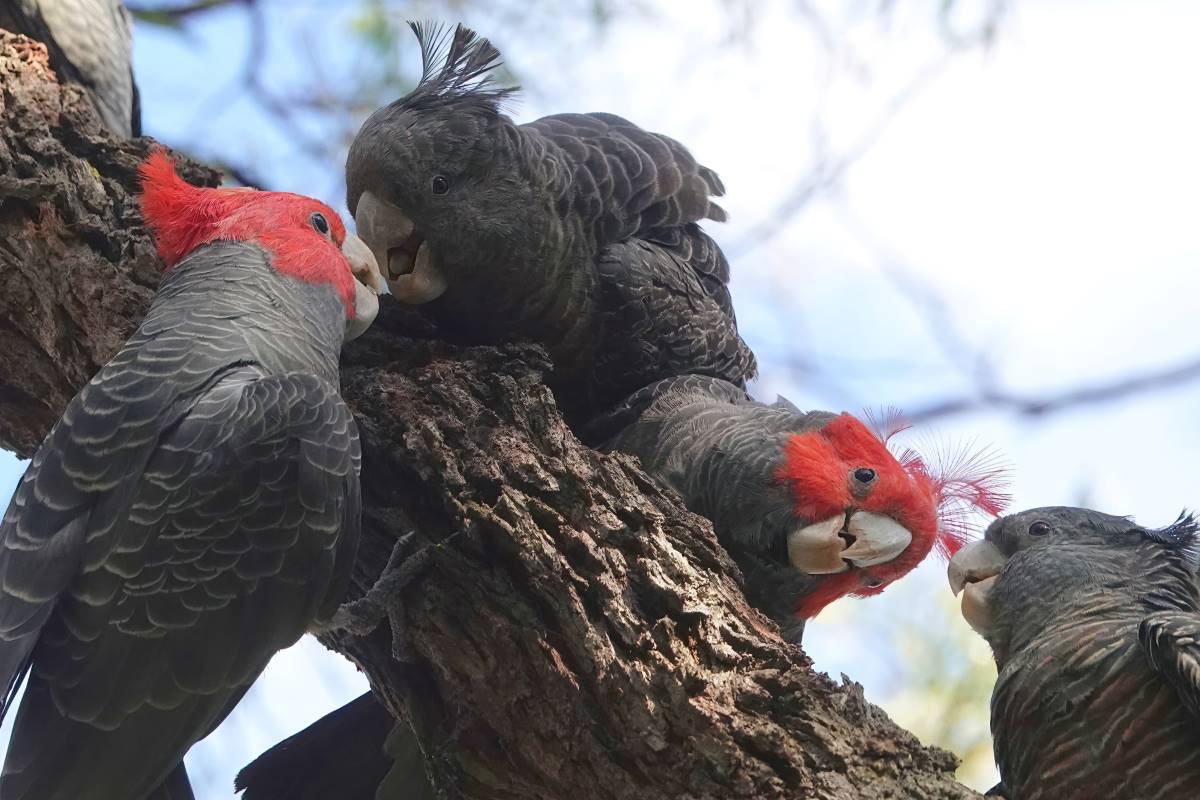
Gang-gangs were once common in the Blue Mountains and people who have lived here for years have told me about them feeding in their yards in the Lower Mountains during the colder months. Sadly, that is no longer the case.
I was incredibly excited to see a family of eight in the bush last year; the first I’d ever seen. The group was made up of two adult pairs and four young birds. It was great to see they were breeding successfully.
The older male (second from right) had been interacting with the younger male while the two females looked on. Then the younger male seemed to have a conversation with the older female. Perhaps getting reassurance from his mother.
The communication and connection was real; a sign of intelligence and complex lives.
Eastern Spinebill
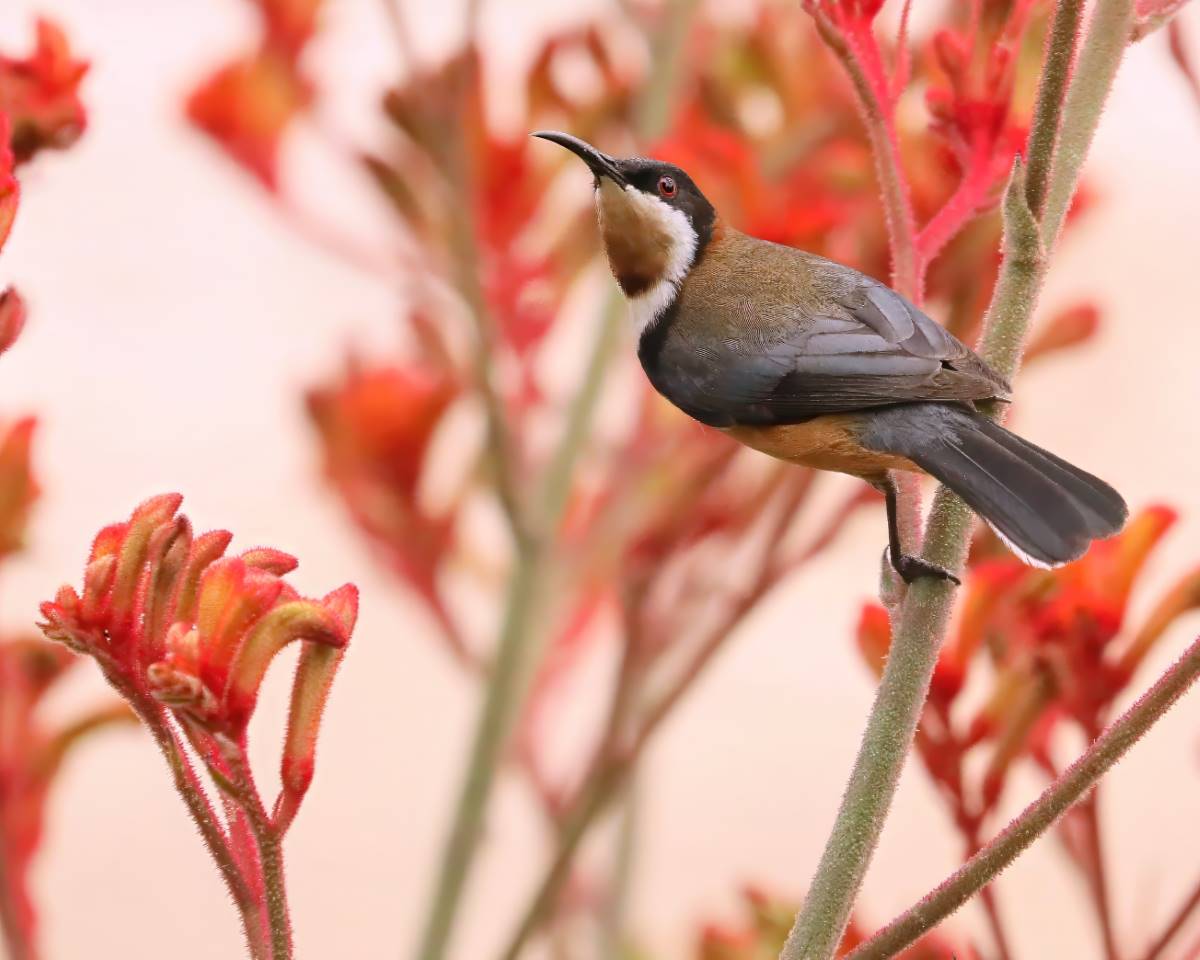
Eastern Spinebills are frequent visitors to our garden and every time I see one, I get a little buzz because they are feeding from something I planted. I’m not the world’s best gardener but I’m learning. Seeing birds come to use our birdbaths and feed from our plants is all the encouragement I need.
Female Glossy Black-Cockatoo
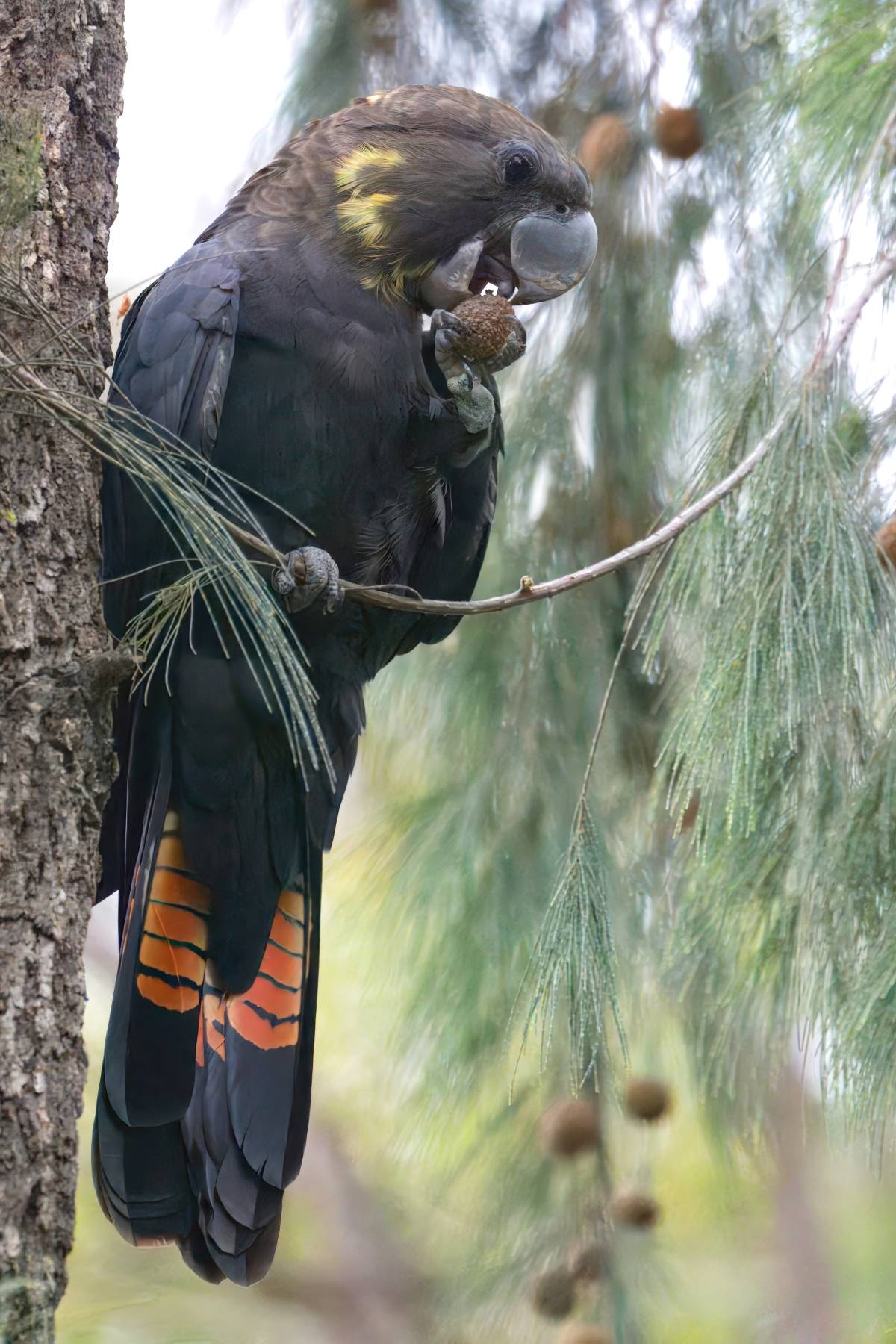
What an absolute delight to stand and watch this beautiful bird as she and two others fed from a Casuarina in the Lower Blue Mountains. Glossy Blacks are listed as vulnerable in NSW and have a very particular diet, feeding almost exclusively from two species of Casuarinas. So many food trees have been lost to bushfire and development. It is just wonderful to know there are places they can still come and feed undisturbed, especially as they tend to return to the same trees each year.
Sulphur Crested Cockatoos
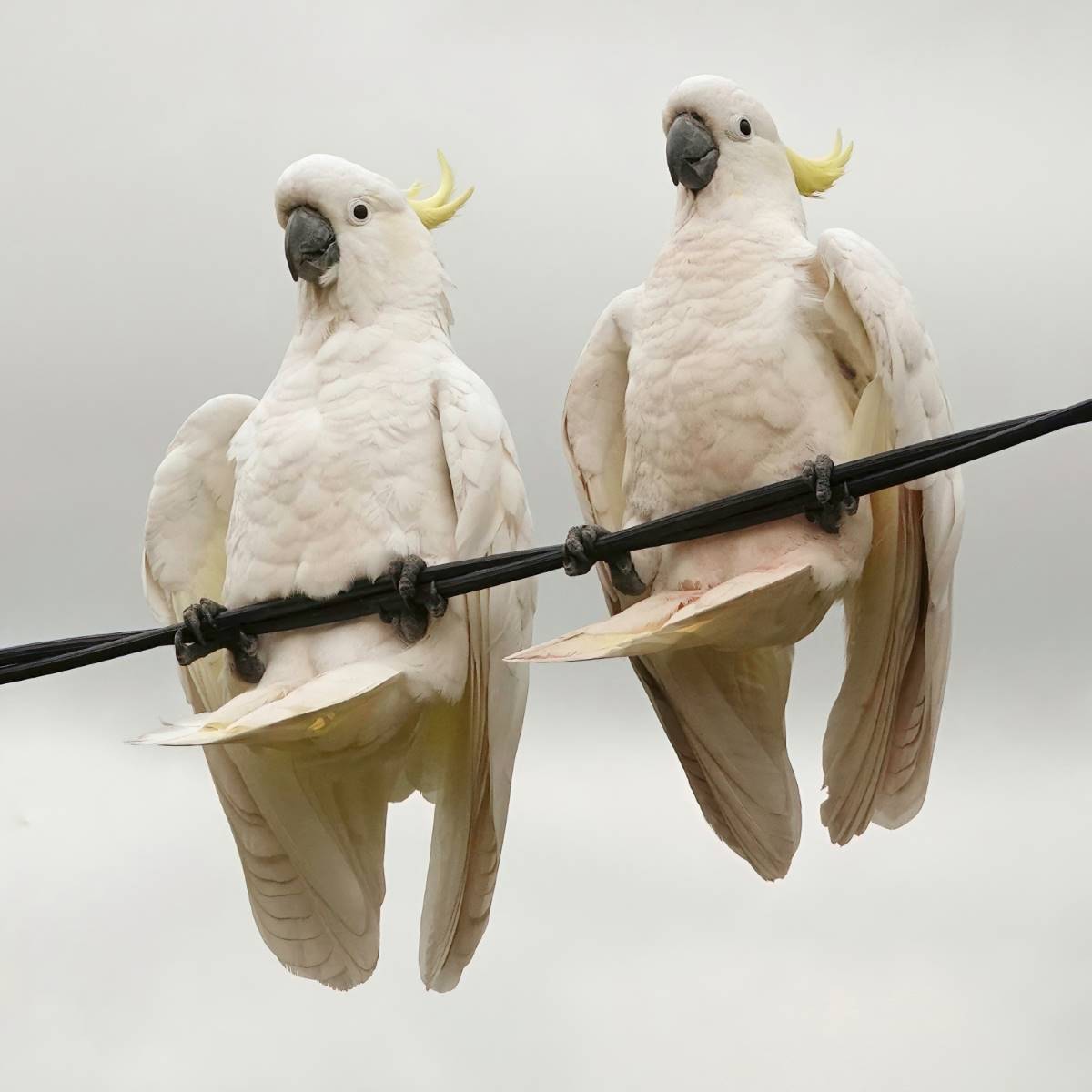
As my husband and I walked our dogs we noticed two Sulphur-crested Cockatoos preening each other on a power line running to a house. Suddenly, a third bird landed, and the moment was ruined as they struggled to keep their balance. One thing I love about photography (especially with a high shutter speed) is catching moments we would otherwise miss.
This photo reminds me of a synchronised gymnastics routine, but in reality it was a split second and certainly not as controlled as it looked. The next minute one bird was hanging upside down and the other was flapping madly.
Tawny Frogmouth
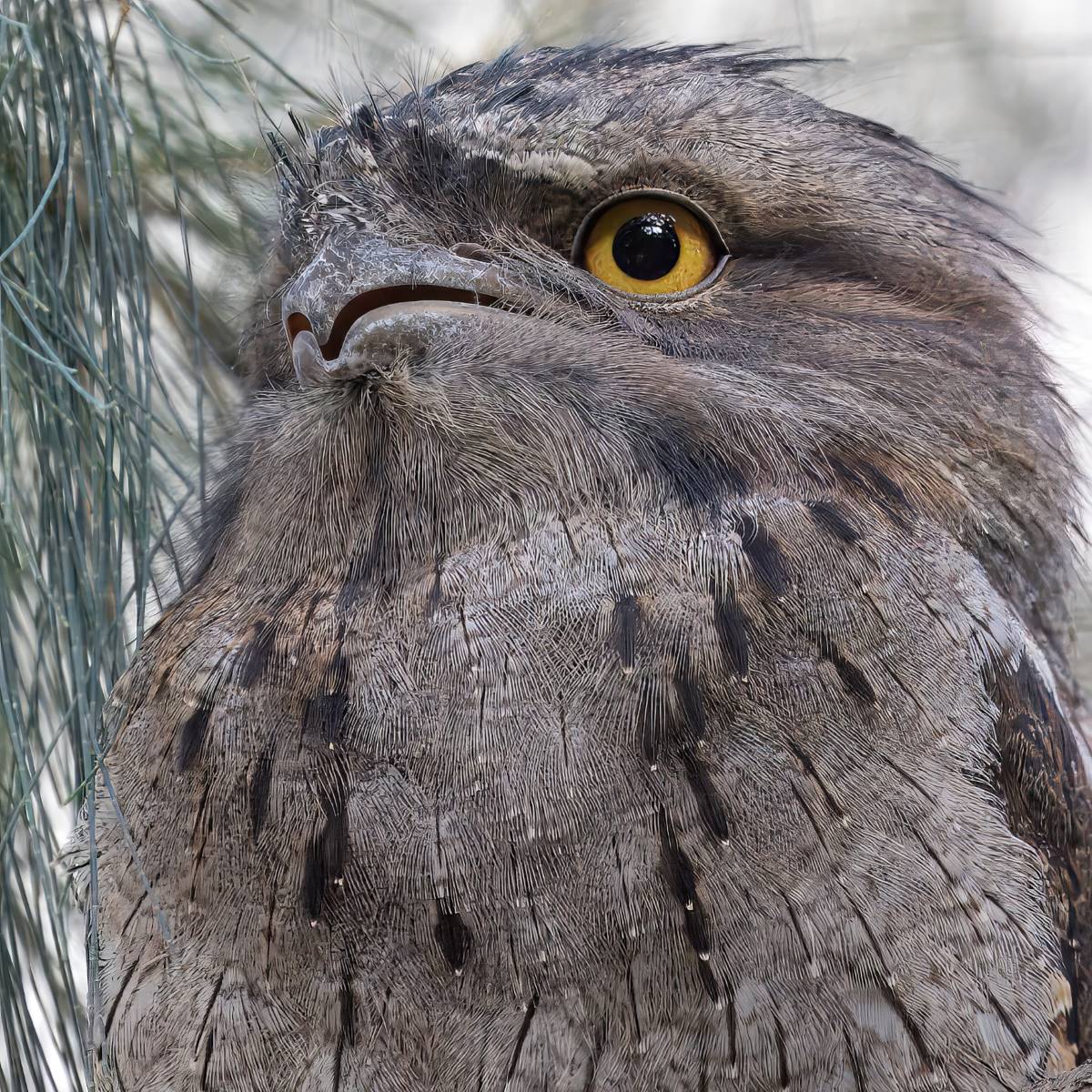
Tawny Frogmouths are fascinating birds. They are so good at staying still, I wonder how many I have walked past without noticing. A lovely person told me where two could often be found. Whenever I saw them they were in deep shade and behind lots of foliage.
One time, in the late afternoon, the light changed subtly, and this bird started paying attention to ravens calling nearby. Fortunately, I also managed to find a spot with a clear view. The patterns and soft browns of the feathers are intricately beautiful, but those golden eyes are just glorious.
King Parrot
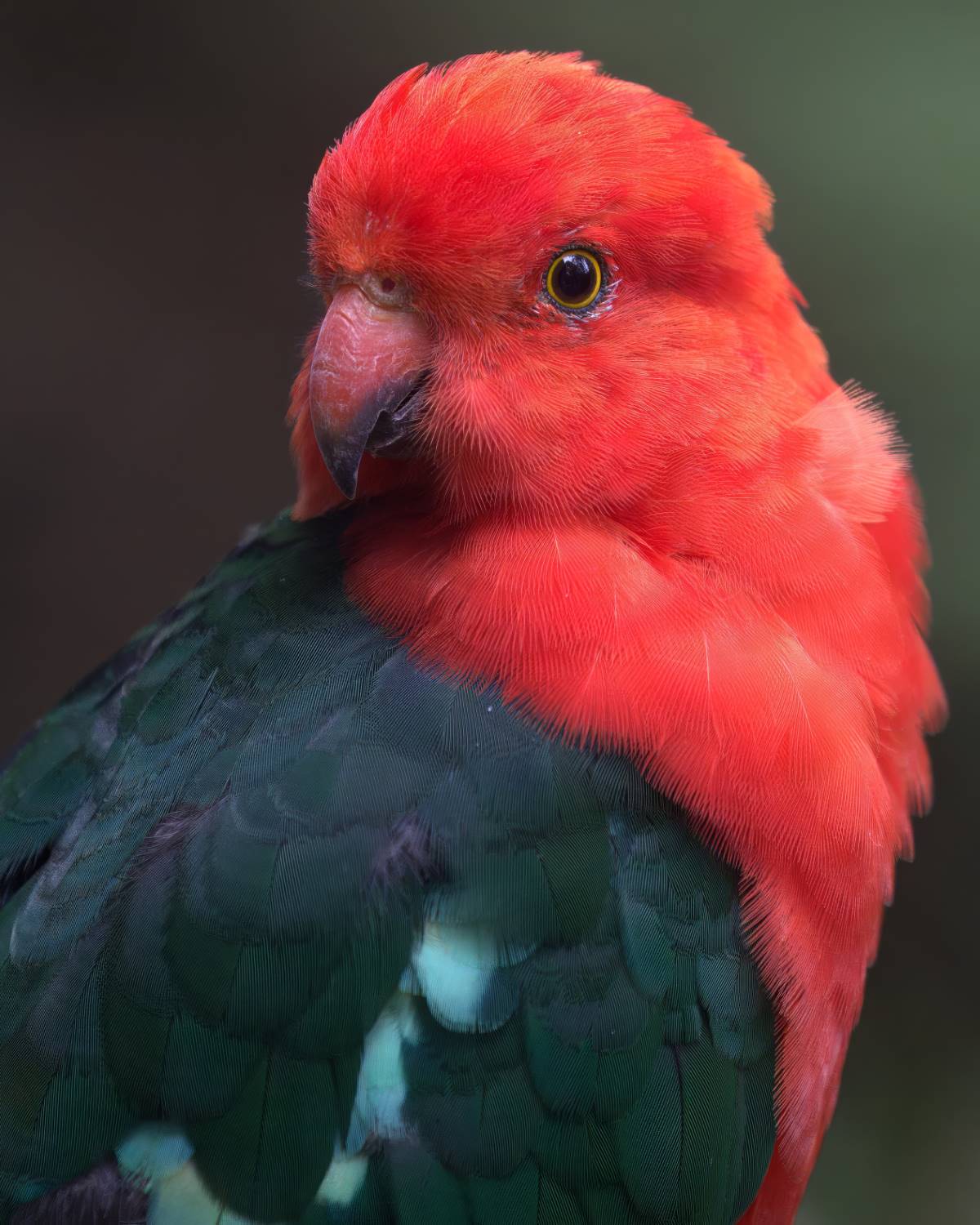
King Parrots are not only beautiful to look at, they are also very special to interact with. I was visiting a friend when this male flew into her yard. As he flew down from a tree to a hose cart, I felt the wind from his wings, he was so close. There was no food offered but he really seemed to look at me and listen as I talked to him. One thing I love about this photo is the connection; he was looking right at me.
Take Action:
- Consider joining Blue Mountains Bird Observers, a community group open to anyone interested in the birdlife of the Blue Mountains.
- Feeding wild birds can cause great harm including malnutrition, disease and unbalanced populations. Birdlife Australia does not condone wild bird feeding but acknowledges 30 to 50 per cent of Australian households feed the wildlife they are often seeking to help. A guide to feeding wild birds in Australia provides tips to avoid causing birds serious problems. For example, it advises you should not feed birds any of the following:
- bread, crackers or other human snacks
- mince and raw meat
- honey and sugar.
- Birdlife Australia recommends planting a variety of flowering native shrubs as a safe and healthy food source for the nectar-feeding birds in your backyard.
- Particularly in hot weather, provide bird baths for birds to drink from and bathe in. Make sure they are cleaned regularly and are close to bushes or trees where they can escape to.
- Purchase cards, prints and calendars featuring Merryl’s photos on Made It Australia, at Blaxland Post Office or Leura Pharmacy.
- Learn how to capture and share nature’s beauty through photography at affordable courses run by Nepean Community College.
- Merryl recommends we all stop, even for 10 minutes, be still, look and listen to the amazing wildlife we have around us. “It’s good for your mental health. You can find things that bring you joy, and it can be the smallest thing.”
Share this article:
This story has been produced as part of a Bioregional Collaboration for Planetary Health and is supported by the Disaster Risk Reduction Fund (DRRF). The DRRF is jointly funded by the Australian and New South Wales governments.
